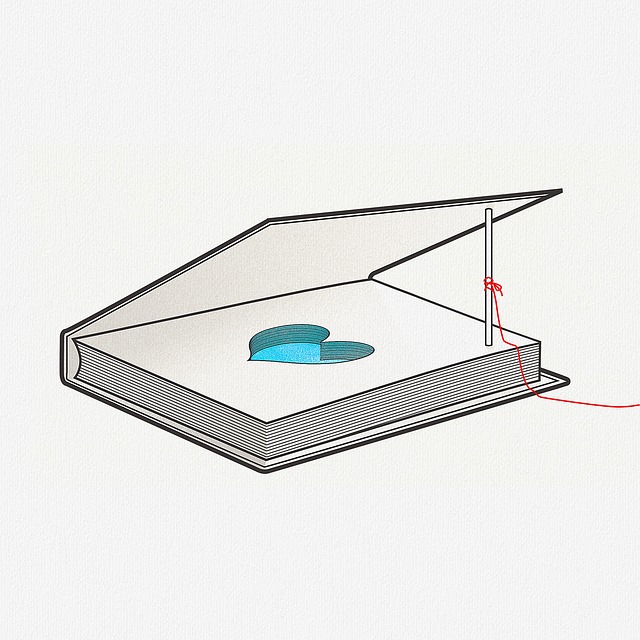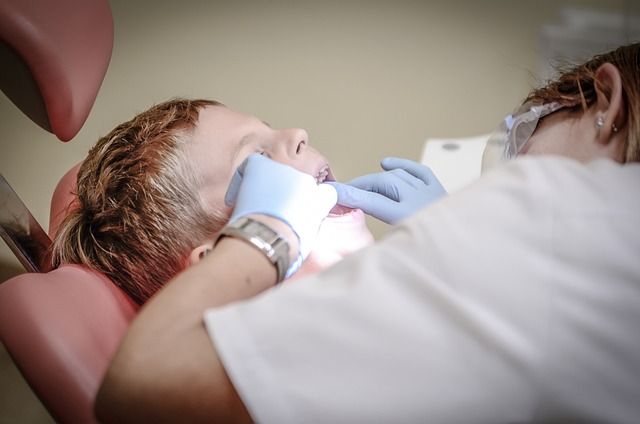Discover the cost of veneers in PA with our comprehensive guide. Gain valuable insights to make an informed decision about your smile transformation.
1. Understanding the Basics: What are Veneers and How Can They Enhance Your Smile?
Veneers are a popular dental treatment used to enhance the appearance of teeth and create a beautiful smile. Made from thin shells of porcelain or composite resin, veneers are custom-made to fit over the front surfaces of the teeth. They are designed to improve the shape, color, and size of teeth, as well as correct various cosmetic dental issues.
One of the main benefits of veneers is their ability to transform the overall appearance of a person’s smile. Whether you have chipped, stained, or misaligned teeth, veneers can provide a natural-looking solution. They can also be used to close gaps between teeth and create a more uniform and symmetrical smile.
2. Factors Affecting Veneer Costs in Pennsylvania: Exploring the Variables
When it comes to veneer costs in Pennsylvania, there are several factors that can significantly influence the overall pricing. It’s important to understand these variables to make informed decisions and get the best value for your money. Here are some key factors to consider:
- Type of Veneer: There are various types of veneer available in the market, including wood veneer, laminate veneer, and natural stone veneer. Each type comes with its own price range due to differences in materials and manufacturing processes.
- Veneer Thickness: The thickness of the veneer plays a crucial role in determining its cost. Thicker veneers are generally more durable and provide a more authentic look, but they tend to be more expensive than thinner options.
- Veneer Quality: The quality of the veneer also impacts its cost. Higher-quality veneers, such as those with fewer defects and a more consistent grain pattern, usually come at a higher price. However, they also offer better aesthetics and longevity.
- Customization: If you require customized veneer designs or special finishes, the cost may increase. Customization often involves additional labor and materials, which can add to the overall expenses.
By considering these factors, you can navigate the veneer market more effectively and find the right balance between cost and quality. Keep in mind that prices can vary between suppliers, so it’s always a good idea to compare quotes and explore different options before making a final decision.
3. Average Cost of Veneers in PA: What to Expect for Your Investment
When considering getting veneers in Pennsylvania, it’s important to have an idea of the average cost and what to expect in terms of your investment. Veneers can enhance your smile and give you the confidence you’ve always wanted, but it’s essential to understand the financial commitment involved.
So, how much can you expect to pay for veneers in PA? The average cost of veneers ranges from $800 to $2,500 per tooth, depending on various factors:
- The number of teeth being treated: If you’re only looking to have a few teeth done, the cost will be less compared to getting veneers for your entire smile.
- The type of material used: Veneers can be made from porcelain or composite resin. Porcelain veneers are generally more expensive but offer superior durability and a more natural appearance.
- The complexity of the procedure: Some cases may require additional procedures like tooth preparation or temporary veneers, which can impact the overall cost.
It’s important to note that these are just average costs, and you should consult with a qualified dentist for an accurate estimate. Additionally, keep in mind that dental insurance may not cover the cost of cosmetic procedures like veneers, so it’s a good idea to inquire about financing options if needed.
4. Is Insurance Coverage Available for Veneers? Exploring Your Options
When considering getting veneers, one of the first questions that may come to mind is whether insurance coverage is available. While dental insurance plans differ, it’s important to familiarize yourself with your options to make an informed decision. Here are some key points to consider:
1. Medical insurance versus dental insurance: Most medical insurance plans do not cover veneers as they are considered a cosmetic procedure. However, dental insurance may provide some coverage depending on your specific plan. It’s crucial to review your dental policy or contact your insurance provider to understand their coverage for veneers.
2. Types of coverage: If your dental insurance does cover veneers, it may fall under either preventive or major procedures. Preventive coverage typically includes routine treatments like cleanings and exams. Major coverage includes procedures like crowns, bridges, and potentially veneers. Understanding which category veneers fall under in your plan can help you anticipate the level of coverage you might receive. Additionally, some plans may cover a percentage of the cost, while others may have a set dollar amount or limit per year.
5. Finding the Right Dentist: Factors to Consider for a Competitive Veneer Price
When considering getting veneers, finding the right dentist is crucial. Besides ensuring the quality of the dental work, it is also important to find a competitive veneer price. Here are some factors to consider when choosing a dentist:
- Experience: Look for a dentist who has extensive experience in performing veneer procedures. Experienced dentists are more likely to produce superior results and avoid complications.
- Qualifications: Verify that the dentist is licensed by the appropriate dental board and holds the necessary qualifications. You can also check for any additional certifications that demonstrate their expertise in cosmetic dentistry.
- Reputation: Research the dentist’s reputation by reading online reviews and testimonials. A dentist with positive reviews and satisfied patients is more likely to deliver a high-quality veneer experience.
- Technology and Materials: Inquire about the technology and materials used by the dentist. Advanced technology can enhance the accuracy and efficiency of the veneer procedure. High-quality materials will ensure longevity and natural aesthetics.
Remember to schedule consultations with multiple dentists to compare prices and get a sense of their expertise. Keep in mind that the cost of veneers should not be the sole determining factor. It is essential to strike a balance between competitive pricing and the quality of dental work to achieve the best results for your smile.
6. Balancing Quality and Affordability: Tips for Choosing the Right Veneer Material
When it comes to choosing the perfect veneer material for your project, striking a balance between quality and affordability is crucial. Here are some valuable tips to help you make the right choice:
- Consider durability: Look for veneer materials that are highly durable and can withstand everyday wear and tear. Opt for options such as high-pressure laminate (HPL) or engineered veneer, as they offer excellent resistance to scratches, stains, and moisture.
- Assess aesthetics: While affordability is important, you shouldn’t compromise on the appearance of the veneer material. Select a material that complements the overall design scheme and desired aesthetic of your space. Choose from a variety of veneer options, such as natural wood veneers or composite veneers, to achieve the desired visual effect.
- Evaluate maintenance requirements: Some veneer materials require more maintenance than others. Consider the time and effort you are willing to devote to upkeep. Veneers with a protective coating or those that are easy to clean can help reduce maintenance efforts in the long run.
Seek professional advice: Consulting with a professional contractor or interior designer can provide you with valuable insights on selecting the right veneer material. They can guide you through the available options, provide cost-effective alternatives, and ensure you make an informed decision that meets your specific project requirements.
7. The Importance of a Custom Veneer Treatment Plan: Tailoring Costs to Your Needs
When it comes to veneer treatments, a custom plan is of utmost importance. Why? Well, every individual’s dental needs are unique, and a customized treatment plan ensures that your specific requirements are met effectively, resulting in optimum oral health and a beautiful smile. Here’s why tailoring costs to your needs through a personalized veneer treatment plan is crucial:
1. Precision: A custom veneer treatment plan allows your dentist to meticulously analyze your dental condition and design a solution that perfectly fits your unique situation. By assessing aspects such as tooth shape, size, color, bite alignment, and overall facial harmony, a personalized plan ensures that the veneers blend seamlessly with your natural teeth, giving you an incredibly natural-looking smile.
2. Cost-efficiency: Customizing costs based on your needs enables you to have better control over your budget. Your dentist will work closely with you to determine the most suitable veneer materials and treatment options that align with your oral health goals and financial capabilities. By tailoring costs to your specific needs, unnecessary expenses can be minimized, allowing you to make the most of your investment in dental veneers.
8. Beyond the Sticker Price: Understanding Additional Fees for Veneer Procedures
When considering getting veneers, it is important to understand that there may be additional fees beyond the initial sticker price. These additional fees can vary depending on the specific procedures involved. To help you better understand what these fees might entail, we have compiled a list of common additional charges related to veneer procedures:
- Consultation fees: Before proceeding with veneers, a consultation is typically required. These consultations involve a thorough examination of your teeth, discussion of treatment options, and determination of the best course of action. The costs associated with these consultations may vary.
- Dental imaging: In some cases, dental imaging such as X-rays or 3D scans may be necessary to accurately plan and execute the veneer procedure. These imaging techniques allow dentists to have a detailed understanding of your teeth and jaw structure, ensuring the best possible results. However, these imaging procedures may incur additional costs.
- Tooth preparation: Prior to placing veneers, it is often necessary to prepare the teeth by removing a small amount of enamel. This process helps create a better bonding surface for the veneers and ensures a more natural appearance. The cost associated with this preparatory step might be factored into the overall treatment package.
Furthermore, it is crucial to consider any potential additional charges that may arise after the initial placement of veneers. These may include:
- Follow-up visits: After your veneers are placed, it is important to have regular follow-up visits with your dentist to monitor the results and ensure their long-term success. These visits may have associated fees, and they are crucial for maintaining the health and lifespan of your veneers.
- Repair or replacement: Veneers are durable, but they are not invincible. In the event of accidental damage or wear over time, repair or replacement of veneers may be necessary. It is important to be aware that repairing or replacing veneers can result in additional costs.
9. Are Payment Plans an Option for Veneers in PA? Exploring Financing Alternatives
When it comes to getting veneers in PA, you may be wondering if payment plans are available to make the procedure more affordable. The good news is that many dental professionals now offer financing alternatives to help you achieve your dream smile without breaking the bank.
Here are a few financing options you can explore:
- Third-Party Financing: Some dental clinics work with third-party financing companies that specialize in healthcare loans. These companies offer flexible payment plans with low-interest rates, allowing you to spread out the cost of your veneers over time.
- In-House Payment Plans: Many dentists also offer in-house payment plans, where you can make monthly payments directly to the clinic. This option eliminates the need for a credit check and often comes with little to no interest, making it a convenient solution for those who prefer to work directly with their dental provider.
- Credit Cards: You may also consider using a credit card to finance your veneers. Some credit cards offer promotional periods with 0% interest, giving you the opportunity to pay off your treatment without accruing additional charges.
Remember, when exploring financing alternatives for veneers, it’s important to carefully review the terms and conditions of each option. Consult with your dentist to discuss which payment plan makes the most sense for your budget and needs. With the right financing in place, achieving the smile you’ve always wanted is well within your reach.
10. Investing in Your Smile: Weighing the Benefits of Veneers Against It’s Cost in Pennsylvania
When it comes to improving your smile, veneers can be a game-changer. These thin, custom-made shells are designed to cover the front surface of your teeth, enhancing their appearance and giving you the bright, white smile you’ve always wanted. However, before making a decision, it’s important to carefully consider the benefits of veneers and the cost associated with this cosmetic dental procedure.
Benefits of Veneers:
- Enhanced Aesthetics: Veneers can effectively mask various dental imperfections such as stains, cracks, chips, or irregularly shaped teeth, giving you a beautiful, symmetrical smile.
- Long-Lasting Results: With proper care, veneers can remain strong and durable for up to 10-15 years, providing you with a long-lasting and reliable solution for your smile.
- Minimal Tooth Alteration: Compared to other cosmetic options, veneers require minimal alteration of your natural teeth, preserving their strength and structure.
- Stain Resistance: Porcelain veneers are highly resistant to stains, allowing you to enjoy your favorite foods and beverages without worrying about discoloration.
Cost Considerations:
- Veneers can be a costly investment, with an average price ranging from $1,000 to $2,500 per tooth. However, keep in mind that the price may vary based on factors such as the complexity of your case, the dentist’s experience, and the materials used.
- Insurance Coverage: Most dental insurance plans do not cover the cost of veneers as they are considered a cosmetic procedure. It’s essential to check with your insurance provider to understand your coverage options.
- Long-Term Savings: While veneers may require a significant upfront investment, their durability and longevity can potentially save you money in the long run compared to frequent touch-ups or the need for alternative cosmetic treatments.
In conclusion, veneers in PA can range in cost depending on several factors. The key takeaway is to consult with a professional dentist to receive an accurate estimate tailored to your specific needs. Invest in your smile, confident that you can achieve a beautiful and long-lasting result that enhances your overall dental health.





